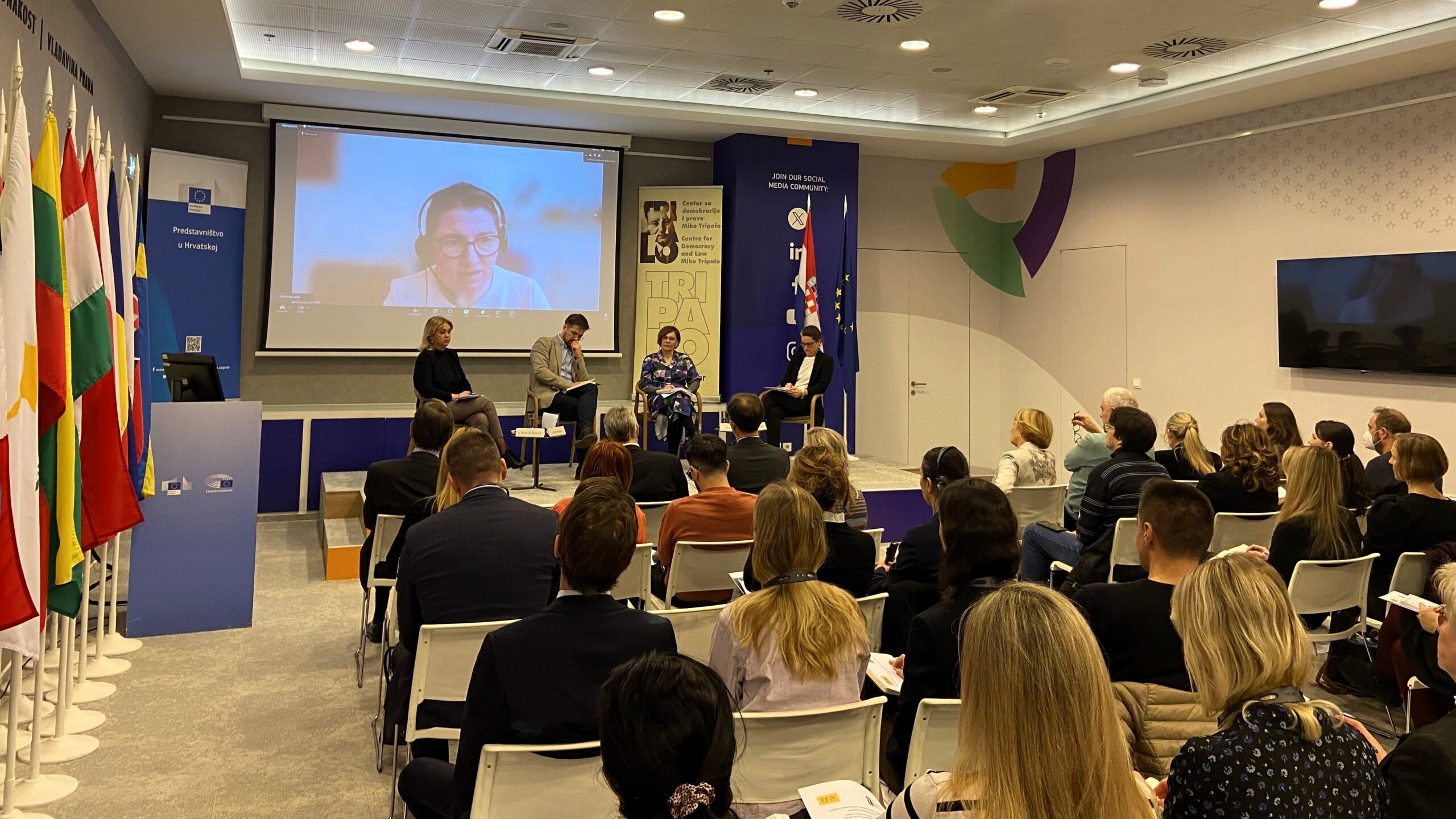On January 29, 2025, the event titled “Report on the Rule of Law: Civil Society and Participation in Decision-Making Processes” was held, organized by the House of Human Rights and the Miko Tripalo Center for Democracy and Law. The Deputy Ombudswoman, Tatjana Vlašić, also participated in the gathering.
The purpose of the event was to review the findings and recommendations of the current European Commission’s Rule of Law Report, particularly focusing on its fourth section concerning the system of checks and balances, with special emphasis on the part dedicated to civil society and its participation in the development of legislation and public policies.
Deputy Ombudswoman Vlašić highlighted the significant role of civil society in preserving and advancing democracy and the rule of law, as well as in preventing violations of citizens’ human rights at local, national, and global levels. This role is also recognized in the United Nations Declaration on Human Rights Defenders.
She further pointed out that at the EU level, there is increasing attention to the obstacles faced by human rights defenders in their work. Accordingly, the European Commission regularly uses the conditions for the operation of civil society organizations, as well as ombudsman institutions such as the Croatian Ombudswoman’s Office, as one of the criteria for assessing the state of the rule of law in member states.
Deputy Vlašić noted that in the previous report concerning the Republic of Croatia, the Commission observed a lack of progress in preparing a new National Plan for Creating an Enabling Environment for the Development of Civil Society for the period 2023 to 2030, as well as the need for more extensive multi-year funding for civil society organizations.
She added that the adoption of the National Plan for Creating an Enabling Environment for the Development of Civil Society is also one of the Ombudswoman’s multi-year recommendations to the Government of the Republic of Croatia. The Ombudswoman has also recommended the introduction of long-term institutional and programmatic funding for the activities of civil society organizations in the field of human rights protection and combating discrimination.
Unfortunately, civil society organizations increasingly face various other obstacles in their work, alongside insufficient institutional frameworks and funding opportunities. For example, they are often prevented from making substantive contributions in public policy-making processes, although, in accordance with the EU Recommendation on Promoting the Engagement and Effective Participation of Citizens and Civil Society Organizations in the Development of Public Policies, member states should create an enabling environment for such participation, precisely to ensure effective involvement in policy-making procedures.
In fact, during public consultations, received comments are still largely disregarded. For instance, in 2023, 20% of comments received were not responded to at all, while 23% were merely acknowledged without further action. Therefore, public authorities should ensure effective two-way communication with the public—not only encouraging citizens to participate by sharing their opinions and proposals but also providing reasoned responses to a significantly greater number of contributions. This is also a recommendation of the Ombudswoman.
In addition to Deputy Vlašić, the event featured participation from Jože Štrus of the European Commission, Waltraud Heller from the European Union Agency for Fundamental Rights (FRA), Ivan Novosel from the House of Human Rights, Lejla Šehić Relić from DKolektiv, with the discussion moderated by Vanja Mladineo from the Miko Tripalo Center.
For more information on this topic, please refer to the Ombudsman’s Report.





